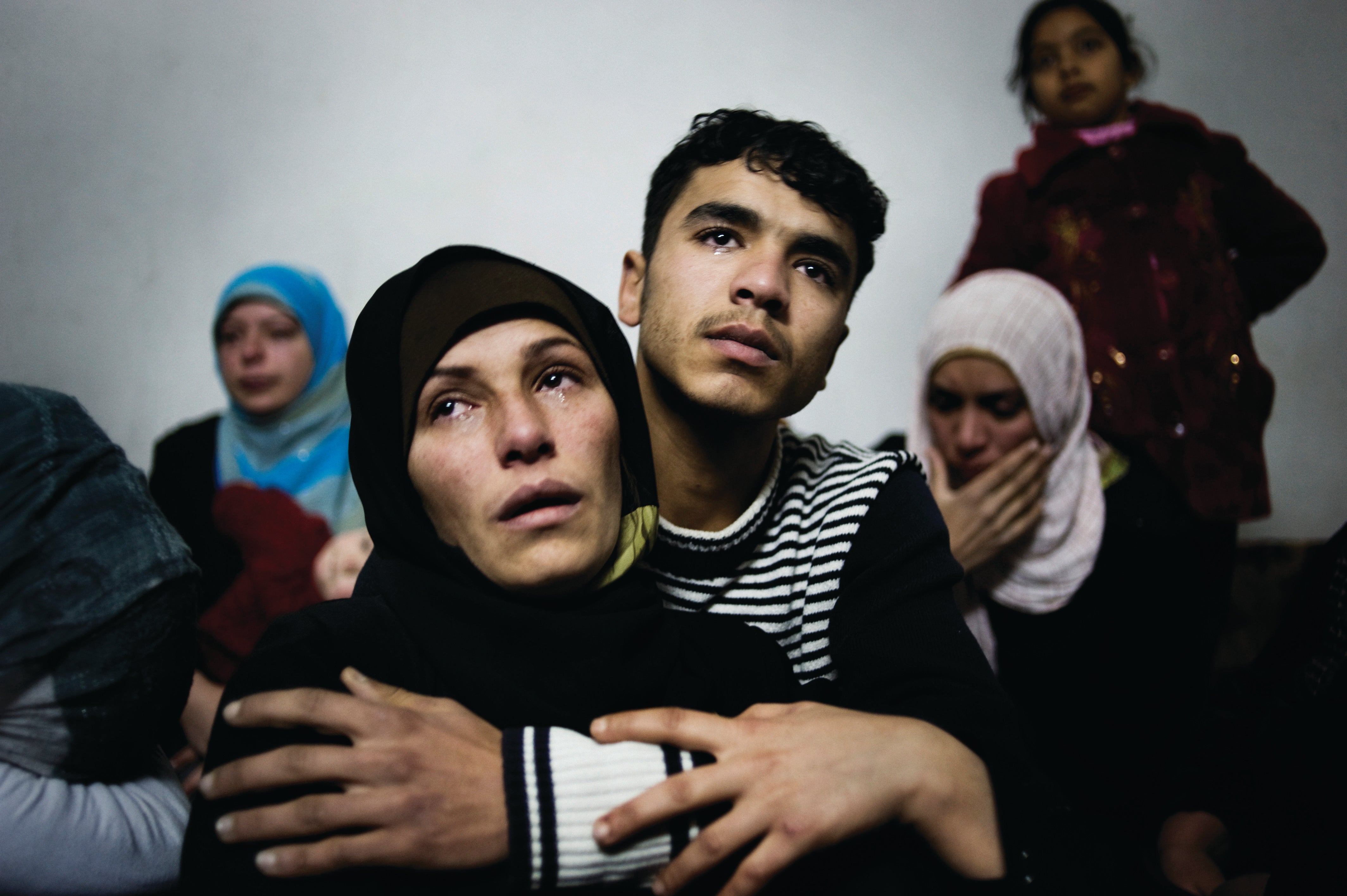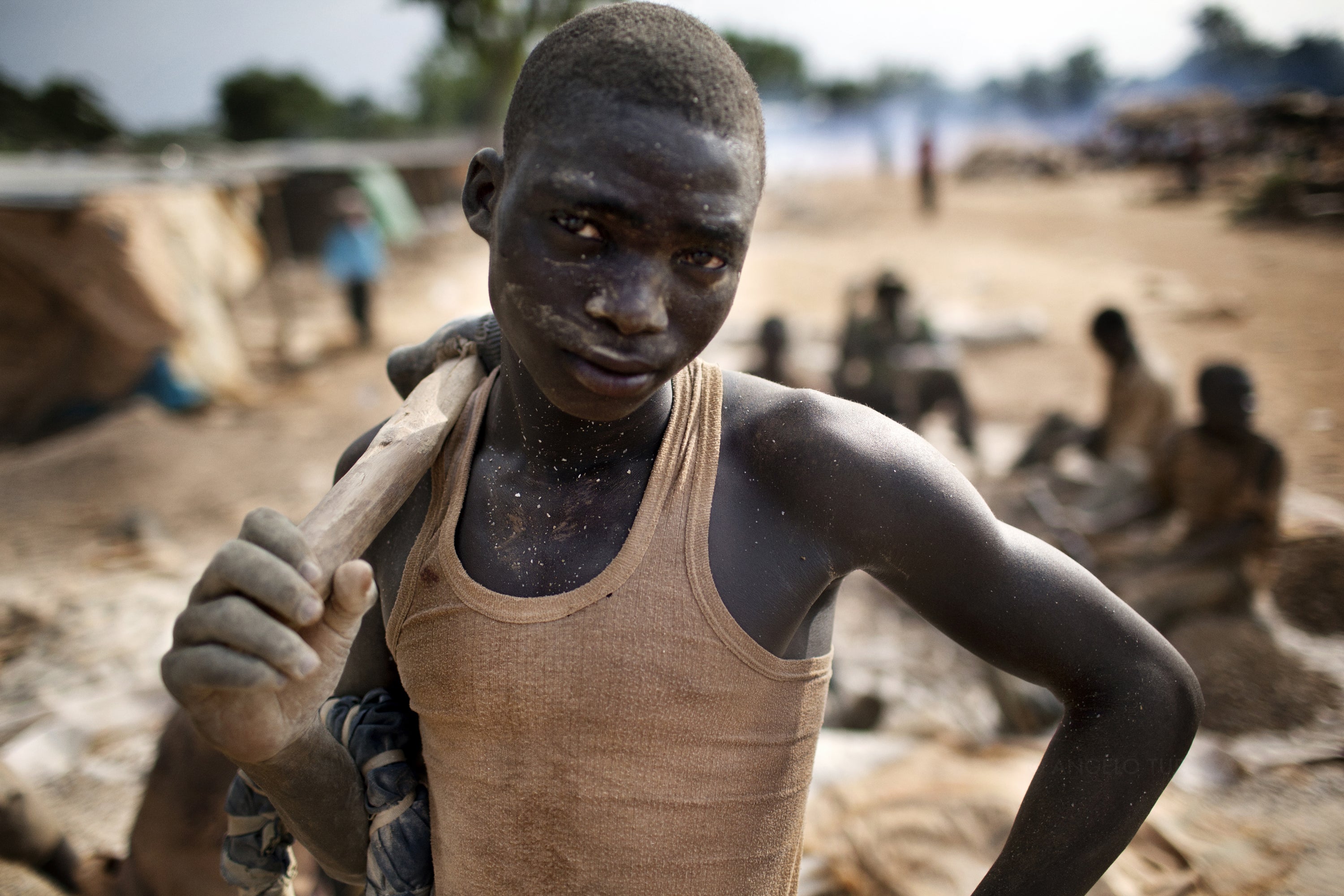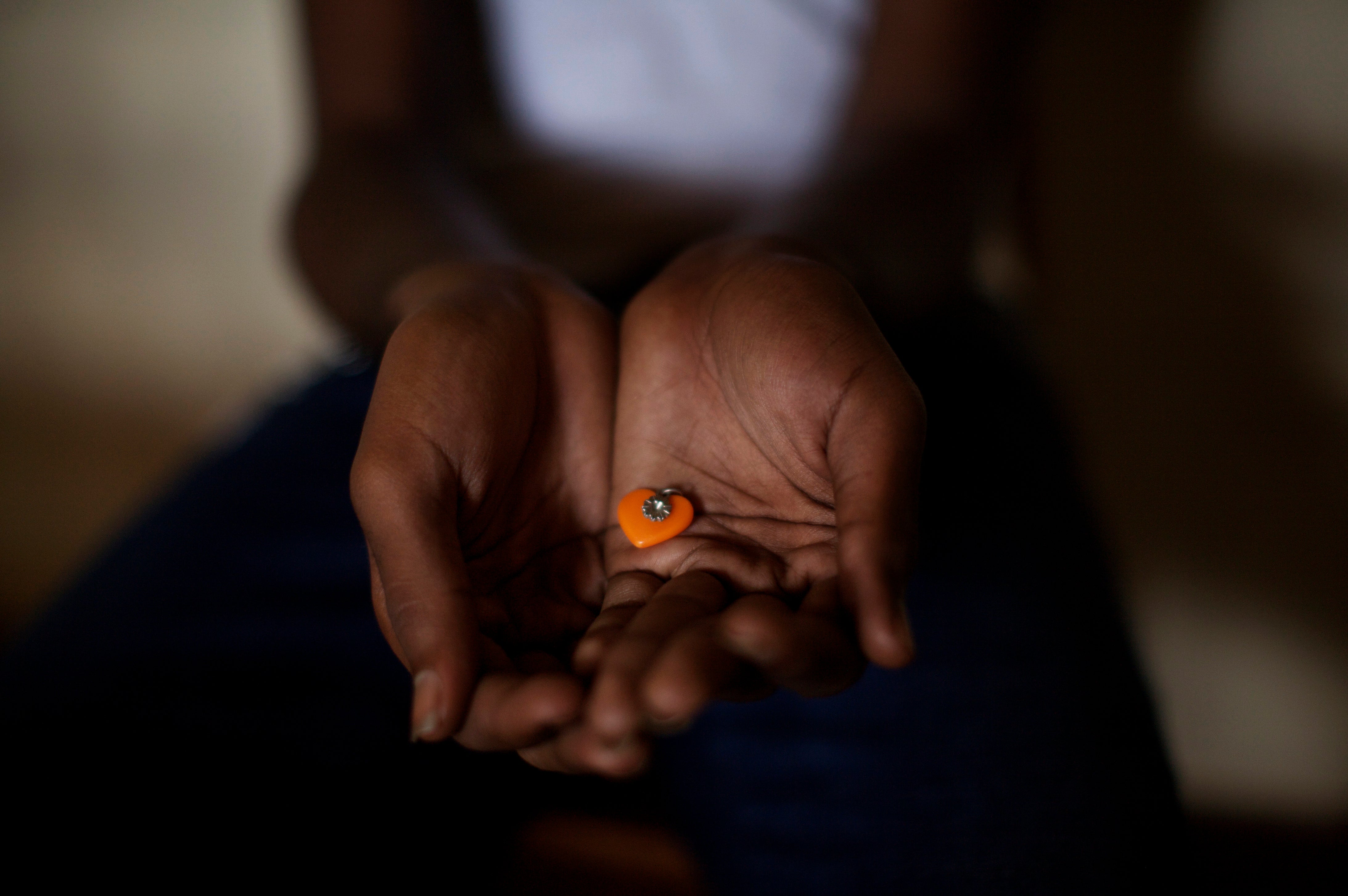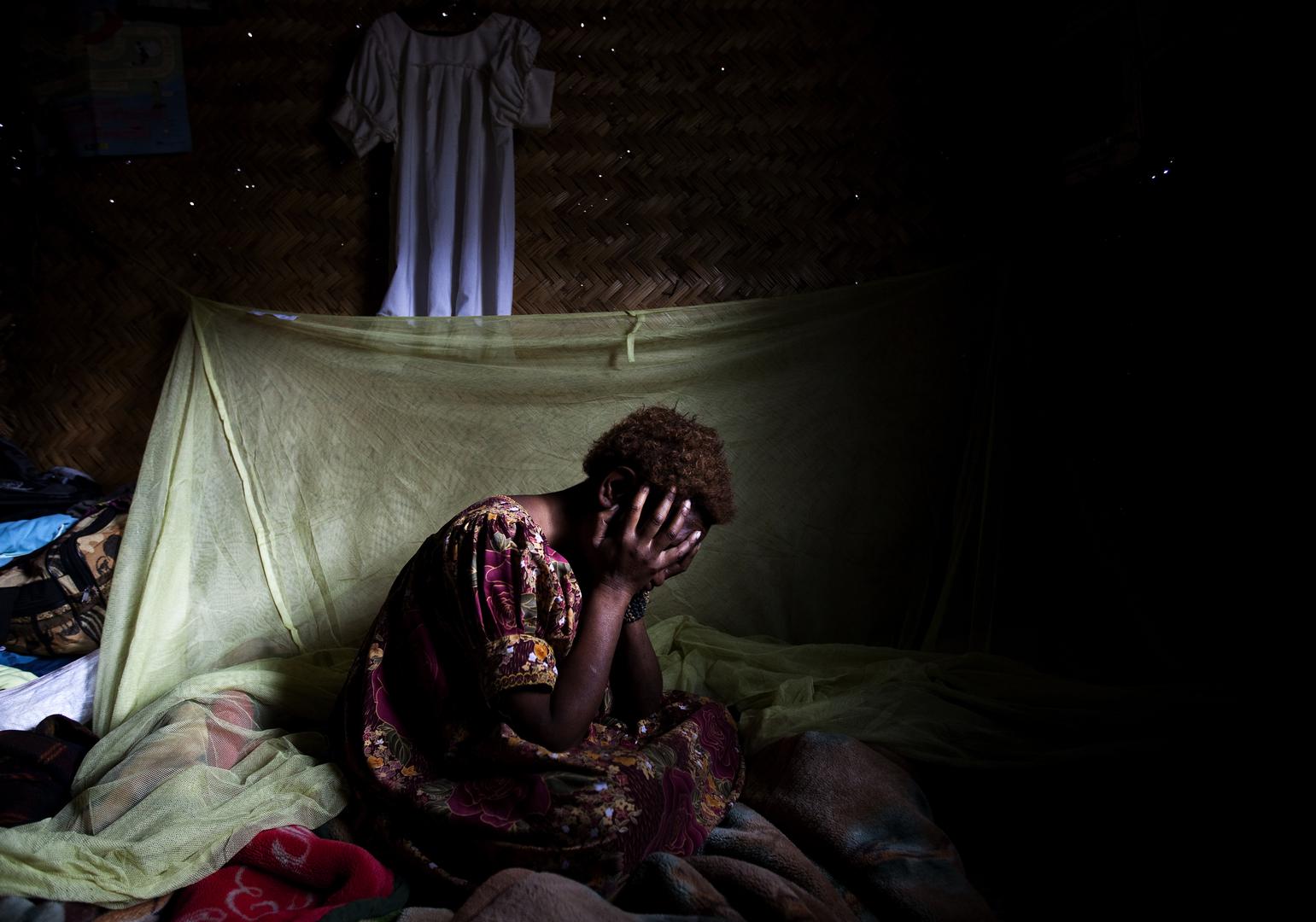The human rights situation in the United Arab Emirates (UAE) worsened in 2012 as authorities arbitrarily detained and deported civil society activists, and harassed and intimidated their lawyers. In September, an independent monitor found significant problems in the treatment of migrant workers on the high-profile Saadiyat Island project in Abu Dhabi, identifying the payment of illegal recruitment fees as a key concern.
Freedom of Association and Expression
The UAE intensified its campaign to silence critics of its ruling elite. Authorities detained 61 human rights defenders and civil society activists without charge on the pretext that they aimed to harm national security. The authorities detained two prominent human rights lawyers, Mohammed al-Roken and Mohammed al-Mansoori, and arrested, deported and intimidated foreign lawyers employed by the UAE law firm that offered legal assistance to the detainees.
The detainees all had links to al-Islah, a peaceful Islamist group that has advocated for political reform in the UAE.
However, the UAE’s crackdown on free expression also targeted individuals with no ties to al-Islah. On June 16, the UAE deported Ahmed Abd al-Khaleq, an advocate for the rights of stateless residents known as Bidun, to Thailand. Authorities had held him without charge since May 22 and threatened to hold him indefinitely unless he left the UAE. Abd al-Khaleq is one of a group of activists whom the government had previously jailed for several months in 2011 for peacefully advocating for reforms and posting internet statements that criticized UAE government policy and leaders.
In February, security officials called in for questioning hundreds of Syrian nationals suspected of attending a demonstration in front of the Syrian consulate in Dubai. The UAE government revoked the residency permits of about 50 of them.
In November, the UAE passed a federal decree on cyber crime that provides for prison sentences for a range of non-violent political activities carried out on or via the internet, from criticism of the UAE’s rulers to calling for unlicensed demonstrations.
Torture, Inhuman Treatment, and Enforced Disappearance
In July, the UAE acceded to the United Nations Convention against Torture. However, its assumption of treaty obligations to prohibit, prevent, and criminalize torture coincided with reports of torture in State Security facilities.
Syrian national Abdulelah al-Jadani told Human Rights Watch that for 18 days in May 2011, men who identified themselves as State Security officers subjected him to regular torture due to what they claimed were his links to political violence in Syria. He said they beat and whipped him, held him in painful stress positions, and hung him from the wall by his arms and legs. A UAE court freed him in January 2012, but convicted his close acquaintance, Musab Khalil Abood, on terrorism charges. Al-Jadani said that during the time he spent with Abood in al-Wathba prison, where the authorities transferred them after each had spent three months in solitary confinement in the State Security facility, Abood told him he had been subjected to the same pattern and methods of torture.
The UAE authorities forcibly disappeared at least one political detainee, Ahmed al-Suweidi, refusing to divulge his location after initially claiming to have transferred him to al-Sader jail on April 26. Unlike other political detainees who made semi-regular calls to their families, al-Suweidi made only one call to his family during his detention, five months after his initial arrest. The whereabouts of all but a handful of the detainees remained unknown during their time in detention. They had no access to legal assistance during that time, and were permitted only intermittent, monitored phone calls to their families. On September 6, witnesses who saw six of the detainees at a Supreme Court hearing to extend their detention said they appeared disheveled, disoriented, and distressed.
On June 12, 2012, a Dubai criminal court cleared 13 Dubai police officers—a lieutenant colonel, six lieutenants, and six lower-ranking officers—of charges of torturing three Pakistani detainees during interrogation in 2010. One of the detainees claimed that the officers hit him in the groin with a metal bar, then stripped him naked and sprayed his body with WD40, an industrial lubricant harmful to human skin. The court acquitted all the officers on the torture charges. It sentenced five to one month’s imprisonment for the “unlawful detention” of a man who died in custody, but did not find them responsible for the injuries that led to his death.
Migrant Workers Rights
According to 2011 government statistics, foreigners account for more than 88.5 percent of UAE residents, many of them poor migrant workers. Immigration sponsorship laws grant employers extraordinary power over the lives of these workers. They have no right to organize or bargain collectively, and face penalties for going on strike. Although the law calls for a minimum wage, the Ministry of Labor has yet to implement it.
Across the country, abuses include unsafe work environments, the withholding of travel documents, and low pay or nonpayment of wages, despite a mandatory electronic payment system introduced in 2009.
In September, PricewaterhouseCoopers (PwC), an independent monitor contracted to assess labor conditions on Saadiyat Island, the site of a major government-sponsored development run by the Abu Dhabi Tourism and Development and Investment Company (TDIC) in Abu Dhabi, reported disturbing findings verifying ongoing labor abuses on the island: 75 percent of the interviewed workers said they paid recruitment fees and 77 percent said they paid visa and travel costs—all costs that UAE law requires employers to pay and that TDIC had pledged to eliminate.
Recruiting fees, which often take months or years for workers to repay, are the single greatest factor in creating conditions of forced labor. PwC said that TDIC, which is the master developer at a project that will host branches of the Louvre and Guggenheim museums, faced “significant challenges” in adhering to UAE labor law on account of “established practices and norms in the regional construction sector.”
UAE labor law excludes domestic workers, denying them basic protections such as limits to hours of work and a weekly day off. In May, a local newspaper obtained a copy of a new draft law for domestic workers. The draft reportedly provides for one weekly day off, two weeks of paid annual leave and 15 paid sick days. However, it also reportedly makes a domestic worker who reveals the “secrets” of her employers liable for prosecution and sanctions of up to six months in prison and a fine of 100,000 dirhams (US$27,000). The draft law also imposes harsh criminal sentences on those who “encourage” a domestic worker to quit her job or offer her shelter. It is unclear whether the law will exclude people who shelter domestic workers fleeing from abusive employers. Authorities have not made the draft law public.
Many female domestic workers in the UAE suffer unpaid wages, food deprivation, long working hours, forced confinement, and physical and sexual abuse. The standard contract for domestic workers introduced in April 2007 calls for “adequate breaks,” but does not limit working hours or provide for a weekly rest day, overtime pay, or workers’ compensation.
Women’s Rights
The UAE adjudicates family law and personal status matters for Muslims pursuant to interpretations of Islamic law, with no option to seek adjudication pursuant to a civil code. The law in particular discriminates against women by granting men privileged status in matters of divorce, inheritance, and child custody. Emirati women can obtain a divorce through khul’a (a no-fault divorce) thereby losing their financial rights. They may only ask for a divorce in exceptional circumstances. Females can only inherit one-third of assets while men are entitled to inherit two-thirds.
The law further discriminates against women by permitting Emirati men, but not women, to have as many as four polygamous marriages and forbidding Muslim women, but not men, from marrying non-Muslims. As a result of a 2011 proposal to allow Emirati women married to foreigners to pass their citizenship to their children, the Interior Ministry granted Emirati citizenship to over 2,000 children of Emirati women in 2012 and identified a total of 5,000 individuals who may be eligible for citizenship.
Despite the existence of shelters and hotlines to help protect women, domestic violence remains a pervasive problem. The penal code gives men the legal right to discipline their wives and children, including through the use of physical violence. The Federal Supreme Court has upheld a husband’s right to “chastise” his wife and children with physical abuse.
Key International Actors
Key allies such as the United States and the United Kingdom have refrained from publicly criticizing the UAE’s crackdown on freedom of expression and repression of civil society, although US officials say that they have raised these issues privately. In 2012, the US signed a $3.48 billion dollar deal with the UAE to provide a missile defence system. In June, “industry sources” in Abu Dhabi cited criticism of the UAE in the UK press as one factor in a decision not to invite British oil company BP to tender for 2014 oil concessions.




